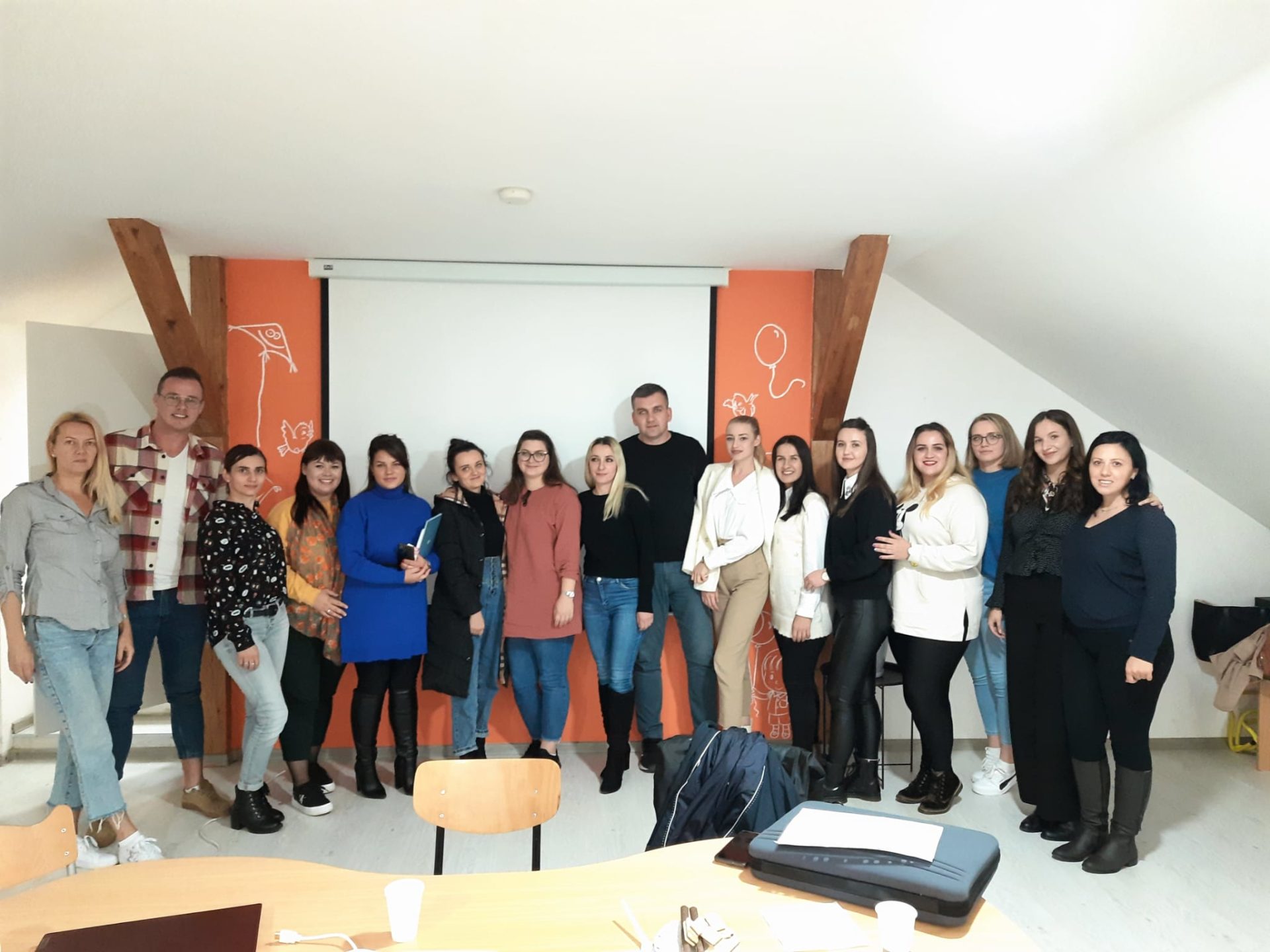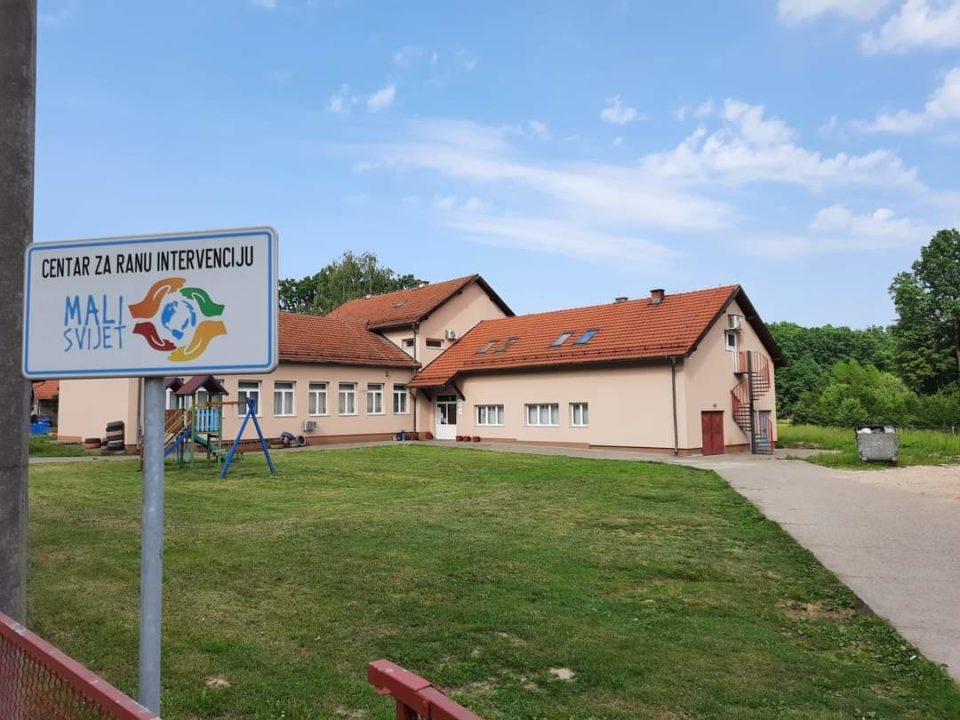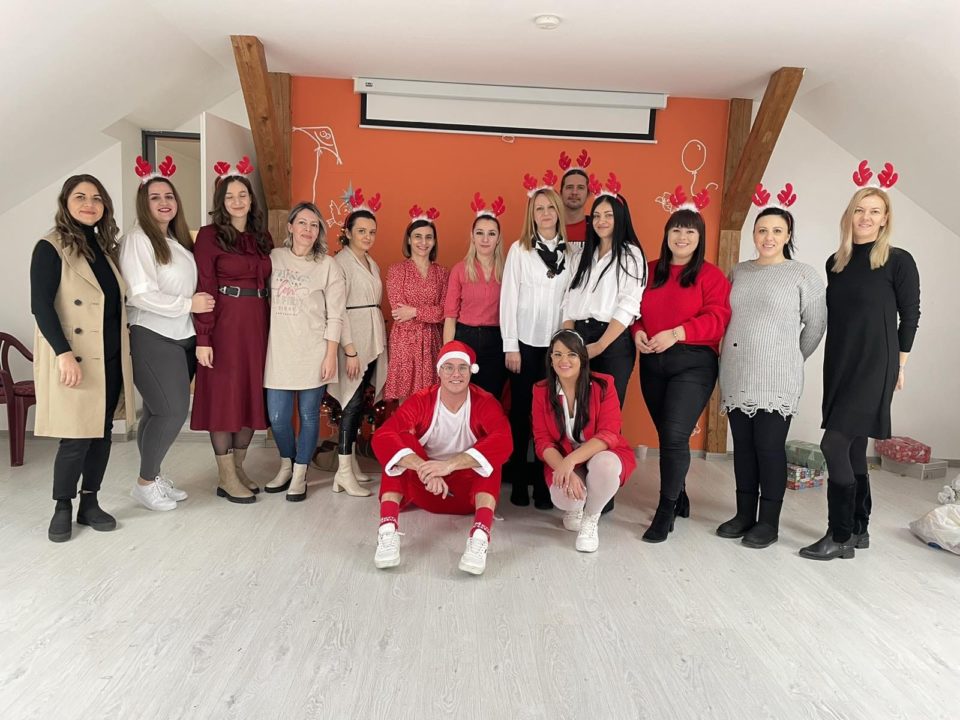
Using modern approaches and therapeutic techniques, the Citizens’ Association Center for Early Intervention for Children with Developmental Disabilities, Mali Svijet [Small World], has been trying for more than 12 years to enable children aged 18 months to six years to more easily overcome the everyday obstacles and difficulties they face. Their assistance helps children reach their full potential at a young age to ensure a brighter future.
The Center is home to 170 children, 110 of whom are in the Center in Bistrac (Lukavac) and 60 in the branch in Dubrava (Živinice). Twenty-three experts work with them with the aim to provide every child the help they need at an early stage and thus the opportunity to reach their full potential.
“The Center provides systemic rehabilitation for children with developmental disabilities at an early age. Through our work, we strive to help children with developmental disabilities and their families, with a special focus on children with autism,” says Almedin Imširović, executive director of Mali Svijet.
In the past 12 years, the Center has engaged dozens of therapists in providing support for hundreds of children and their parents. As Imširović says, the Center’s employees have many happy as well as sad stories of giving their maximum to enable these children to have a happier childhood and a brighter future.

Imširović explains that they are financed from the budget of the city of Lukavac as well as partly from the Austrian organization Red Charity and various grants and donations. “The Center is equipped with modern and didactic equipment, with highly professional but also young staff,” Imširović points out.
In their work, he says they encounter children with various developmental difficulties – most commonly autism, but also speech and language problems and ADHD. “There are more and more children who have some developmental difficulties, as more and more time is spent in front of some media – televisions, mobile phones, tablets – which automatically affects their development process,” adds Imširović.
In cooperation with the international humanitarian organization World Vision, the Center launched the “Be a Small World” campaign, through which, in the course of 360 days, they collected all the necessary funding to restore the Bistrac Donji district school building. The school was handed over for the work of the Center by the local community of Bistrac Donji and the then Municipality of Lukavac. All private companies from the Lukavac area were involved in the campaign, some of which continue to support the Center’s work.
After undergoing a series of trainings, the employees of Mali Svijet signed a collaboration agreement with the Austrian ProMente Academy which will give them the opportunity to complete nine additional training modules aimed at improving their work.
The Center provides neurofeedback and sensory integration treatment as well as other treatments by special education and speech therapists, initial examinations, and Applied Behavioral Analysis services.
“Last year, the number of individual treatments and services provided at the Center was 43,000,” recalls Imširović, adding that the Center provides support to those who need it most with the help of friends from Rotary clubs, including the Rotary Club of Lukavac.

The implementation of a project aimed at the successful rehabilitation and sustainability of the Center, financed by the Rotary Club Wien Donau and Rotary International, should soon begin.
Generally speaking, Imširović tells parents to let kids be kids – to fall down, get dirty, climb a tree, throw a stone, hang out with friends and the like. “Set modern technology aside. Don’t let your child be brought up by some form of media. It will pay off later,” Imširović pointed out.






